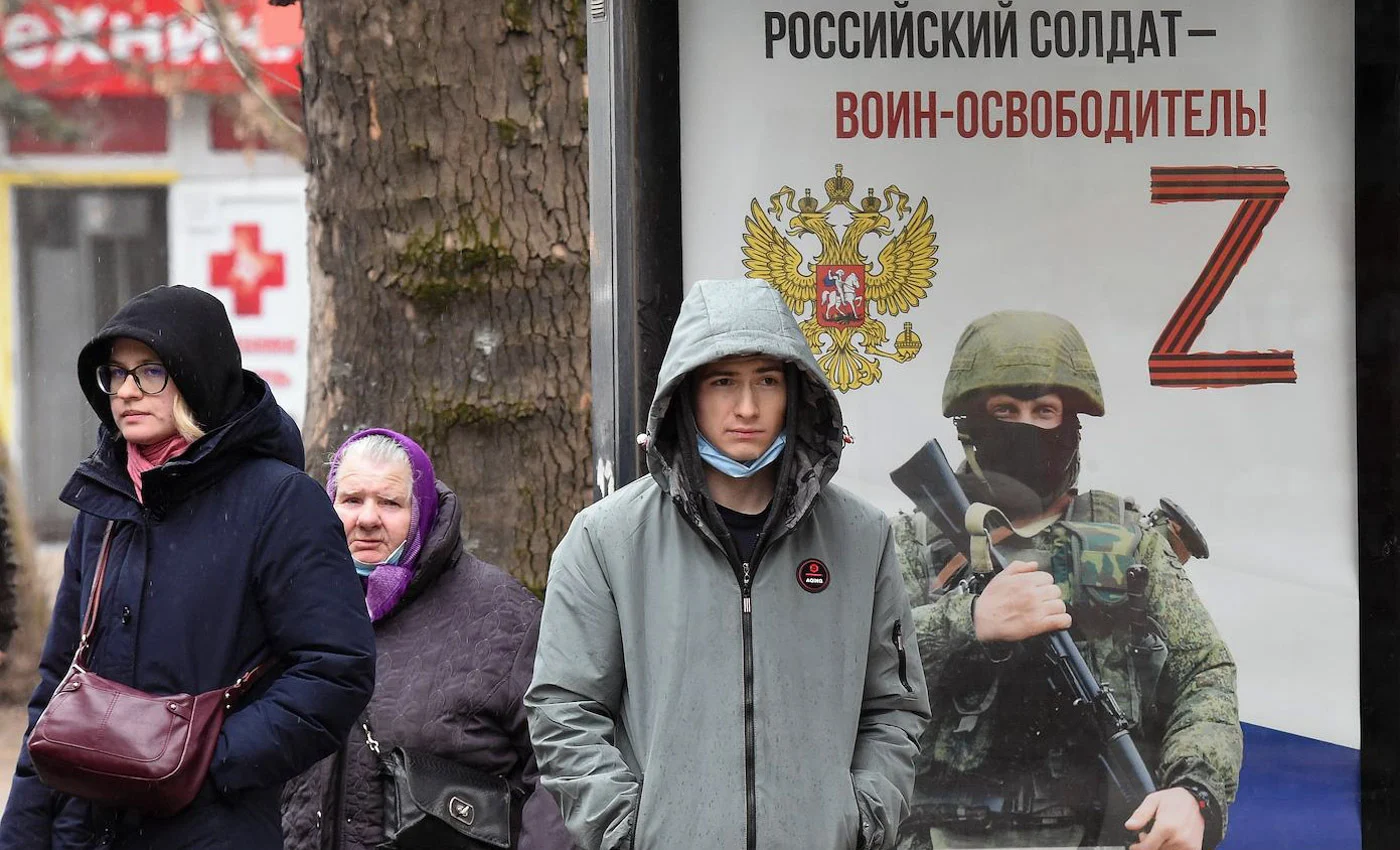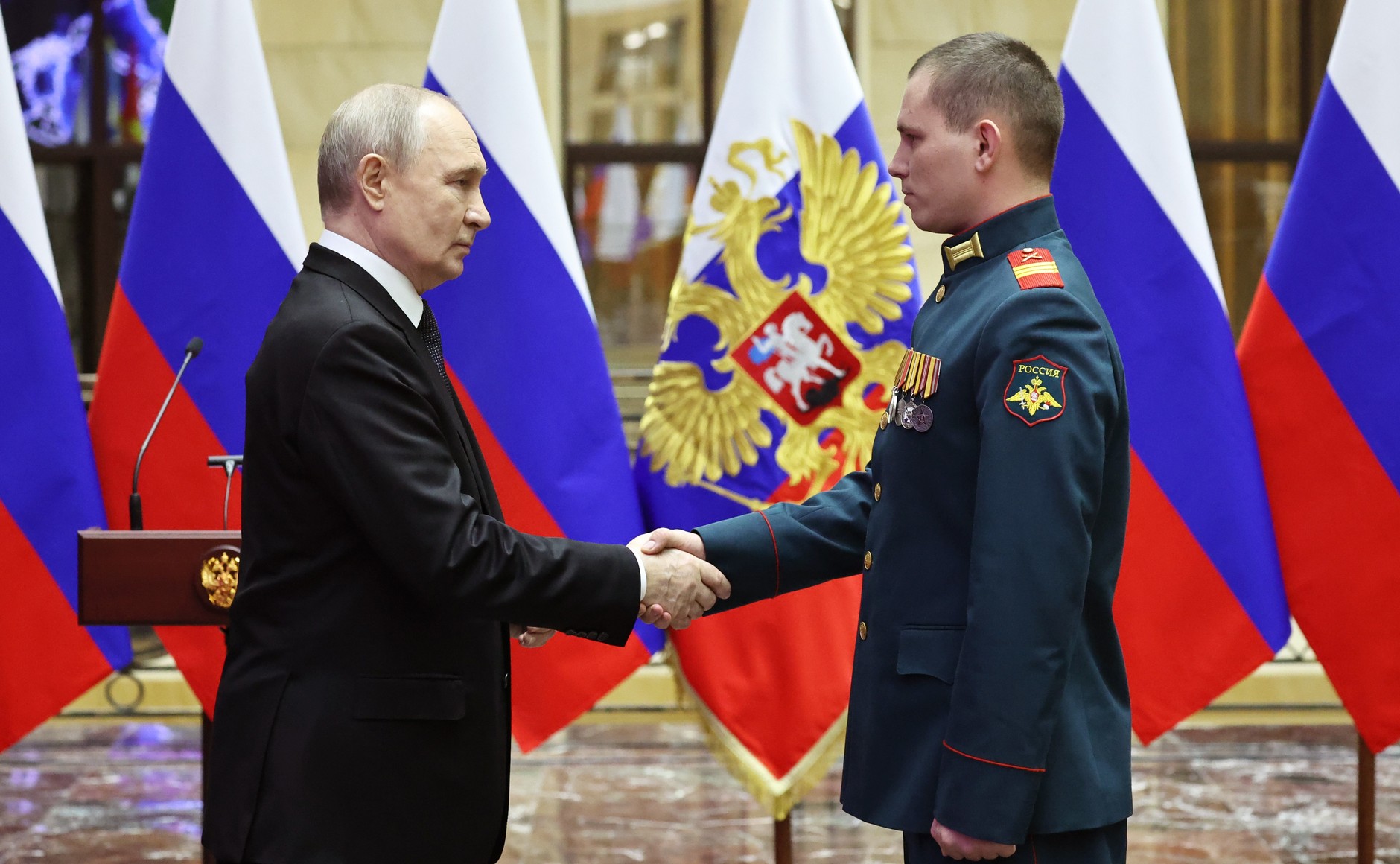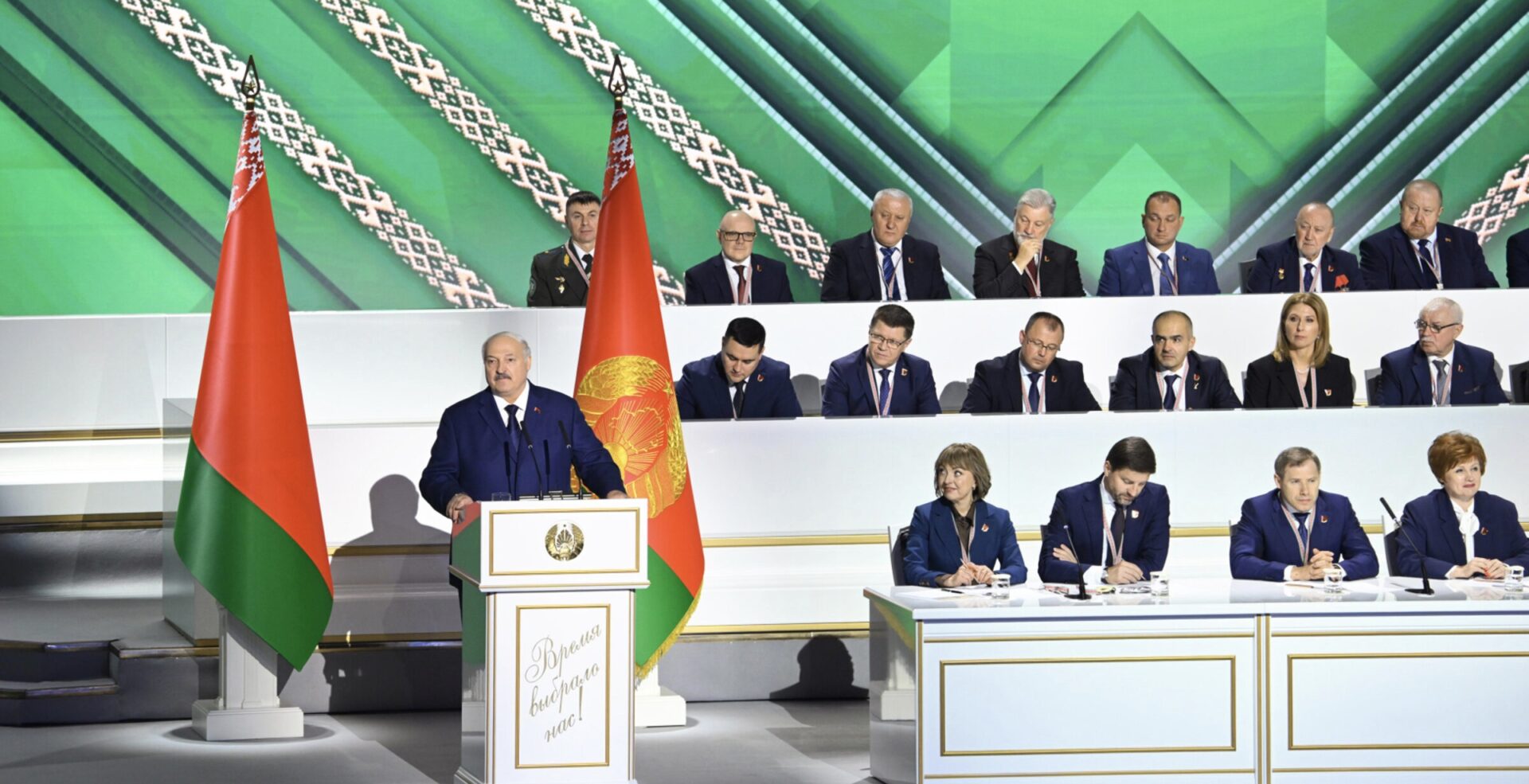
Putin’s Kremlin Struggles to Weather Storm as Russian Society Becomes More Disillusioned
Putin’s Kremlin Struggles to Weather Storm as Russian Society Becomes More Disillusioned
Executive Summary:
- Russian sociologists claim that President Vladimir Putin’s militant regime is relatively stable despite imbalances in Russian society–such as the unstable economy caused by the war against Ukraine and the challenges it has brought and will bring to the population.
- Propaganda pushes Russians to link the cause of this destabilization with phenomena they perceive as results of the war, such as a rise in terrorism, even if they are not entirely related.
- Some Kremlin propaganda promotes the illusion of a quick victory to appease parts of the Russian population. This may backfire, however, as Moscow adjusts to a “long war” footing and conditions in Russian society continue to worsen.
According to Kirill Rogov, a Russian sociologist and researcher at the Vienna Institute for Social Sciences, the Kremlin regime of “militant Putinism” is sufficiently stable enough to survive President Vladimir Putin. For the time being, Rogov claims, the regime can cope with imbalances in society, survive a worsening economic situation, and effectively manage repression and political risk (Re-Russia.net, June 11). Domestic statistics seemingly demonstrate that Russian society and the economy have adapted to the war. In particular, sociological data reports that most Russians have allegedly not felt the effects of sanctions very strongly. Therefore, they are more likely to contribute to patriotic mobilization than to the growth of societal discontent (Re-Russia.net, June 26). Yet, despite these sentiments and efforts from Russian propagandists, Russian society and resolve continue to deteriorate as the war continues to affect Russian people at home through a worsening economy, increased casualties from the war, and disillusionment in the government.
The current situation in Ukraine has facilitated continued support for the Putin regime. In an April survey conducted by ExtremeScan, the share of those Russians expressing support for the war grew from 52 percent in October 2023 to 61 percent. Additionally, according to polls of the Levada Center and Russian Field polling agency from May and June, public support for a transition to peace negotiations has dropped, and support for increasing offensive actions in Ukraine has risen (Re-Russia.net, June 18). Some Russian sociologists attribute this trend to increased confidence in Russia’s advantage on the battlefield and a growing belief in imminent victory.
Rogov, nevertheless, enumerates several sources of societal tension and imbalance that may materialize into a serious domestic crisis for Putin. Economically, growing imbalances are perpetuating problems with imports that have been further aggravated by China taking advantage of Moscow’s increased dependence, leaving Russia as Beijing’s “raw material colony” (see EDM, April 18). Politically, the conflict between the old and new “military” elite may become a primary source of tension, considering that most of society is still trying to distance itself as much as possible from the war (see EDM, March 13). According to the researcher, the Putin regime must “make sure that the increase in the costs of the war is gradual and that the costs of disloyalty are constantly high” (Re-Russia.net, June 11).
The fragile balance in Russian society could be disrupted by phenomena that the population perceives as the consequences of Putin’s war, even if they are not entirely related. This includes the increased frequency of terrorist attacks and the failure of the authorities to prevent them (see EDM, June 25). The rise in attacks throughout Russia is partly due to the increasing legitimization of violence in society, be it the murder of Ukrainians or extrajudicial killings and kidnappings committed by Chechen security forces (Daptar.ru, May 24, 2023; see EDM, February 29). The Kremlin continues to publicly blame the recent terrorist attacks on the West and Kyiv. Independent journalists, relying on their own sources in government, write that most Russian officials are certain the Islamic State is responsible for the attacks in Makhachkala and Derbent. They are not saying this publicly, however, and advise politicians not to refer to those events as terrorist attacks so as “not to alarm people and not return the topic of terrorism to the public consciousness” (Verstka.media, June 26).
Official Russian media obediently pursues this agenda. Leading state-run news agency RIA Novosti publishes articles that deliberately link the Ukrainian shelling of Sevastopol with the terrorist attacks in Derbent and Makhachkala. One article proclaims that there is clear evidence of “the involvement of the intelligence services of Ukraine and the North Atlantic Treaty Organization in the terrorist attacks” (RIA Novosti, June 25). In the short term, the attempt to tie terrorism in Russia to Ukraine may contribute to ordinary Russians’ shock and anger against Ukrainians and hide the fact that Putin’s entire policy in the North Caucasus has failed (see EDM, March 7, June 25). By ignoring the real causes of terrorist attacks, however, the Russian security services will be unable to prevent them in the future. In this event, the population’s belief in Western and Ukrainian involvement may turn against the Kremlin as Russians decide the costs of the war are too high.
More Russians are beginning to perceive the invasion as extremely detrimental to their personal lives. The propaganda of “traditional values,” which has intensified since the beginning of the war, inevitably entails attempts to regulate people’s private lives. Information has emerged that the Kremlin is preparing bills to ban the spread of the idea of not having children. In June, Deputy Minister of Justice Vsevolod Vukolov announced this policy at the St. Petersburg International Legal Forum, calling the refusal to have children an “ideology of an extremist orientation.” He also promised to “stimulate conditions to encourage the birth of children” (Verstka.media, June 28). This initiative is likely in response to Russia’s rapidly worsening demographic situation, which the war in Ukraine is only exacerbating (see EDM, October 24, 2023, February 6).
The illusion of a quick victory, which leads to more popular support for the war, is also capable of turning against the Kremlin, especially as Moscow pursues a “long war” in Ukraine. The basic propaganda narrative today is that a Russian victory in the war with Ukraine is all but predetermined (Pravda.ru, November 7, 2023). Any Ukrainian strikes against Russia in this paradigm are explained either as “revenge for an already lost war” or the “last push” before the final defeat. Russian propaganda is replete with forecasts of the inevitability of victory and the transition of key Ukrainian cities to Russian control (including even “predictions from psychics”) (Newdaynews.ru, January 19; MK.ru, June 28). If the situation at the front develops differently and the victorious reports do not turn out to be true, Russian society will likely become seriously disillusioned with Putin’s Kremlin.
That disillusionment on its own is unlikely to trigger the regime’s collapse. Most Russians have extensive experience and are quite adept in adapting to new lows, and the need to find an explanation that keeps them in their comfort zone helps many cling to propaganda myths (Russiapost.info, June 11, 2023). However, combined with other critical phenomena, such as a sharp drop in the standard of living, the rising risk of terrorist attacks, and a serious deterioration of the situation at the front may play a decisive role in the downfall of Putin’s Kremlin.


